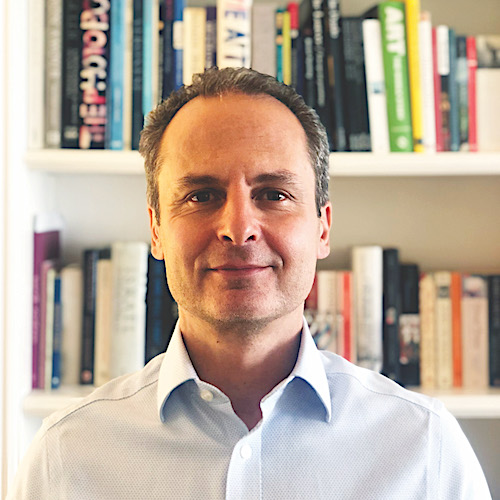“I have learned to see my job not only in terms of competition to generate better investment performance but also in terms of cooperation to work towards a more sustainable way of life.”
COVER STORY: SOCIAL ENTREPRENEURSHIP AND INNOVATION
 Having worked at top financial institutions like Lehman Brothers and Goldman Sachs, Eli Koen continues at UNP (Union Bancaire Privée) as a fund manager focusing on impact investment.
Having worked at top financial institutions like Lehman Brothers and Goldman Sachs, Eli Koen continues at UNP (Union Bancaire Privée) as a fund manager focusing on impact investment.
Why is impact investing necessary?
Impact investing intends to generate a measurable social or environmental impact alongside a financial return. We measure the positive impact of the companies we invest in by pre-determined key performance indicators tracked over time. We aim to deliver good risk-adjusted returns to investors. Impact investing differs from charity or philanthropic investment. The focus on attractive returns is a must for impact investing to be able to reach the scale it needs to have the potential to offer real solutions to our global problems. The UN estimates that the world requires investments of USD 5-7 trillion per year to reach UN Sustainable Development Goals. It is impossible to reach this number without participation from private sector corporations.
What kinds of companies are on your radar?
Any publicly listed company that has a product or service that supports one of the 17 UN SDGs is on our radar. The reason we have chosen the UN SDGs is that they are widely agreed-upon goals in a wide range of sectors which enable us to construct diversified portfolios for our investors.
What do you recommend to those who want to get involved in impact investment?
Make sure your investments are aligned with your values. Do not support businesses against your values with your savings. Educate yourself and others around you using the free and high-quality content online on impact investing and sustainability. Finally, if you want to be professionally involved in impact investing, there are many ways of doing it depending on your skills and interests, including founding or working for start-ups that are in the positive impact space, private and public equity investing with venture capital, traditional fund managers, family offices, foundations and endowments, development banks and the growing sustainability/impact practices of traditional investment banks.
How did RC impact your life and career?
In the first decades of my career, I benefited from the strengths of the RC education such as hard work, analytical thinking, focus on excellence and performance, and a competitive spirit. I believe the RC of my time excelled in encouraging competition and individual performance but had a more mixed record in supporting cooperation and teamwork. A more optimal balance between competition and cooperation could have improved our collective productivity. I have learned to see my job not only in terms of competition to generate better investment performance but also in terms of cooperation with our companies, investors and peers to work towards a more sustainable way of life.
Published February 2022



